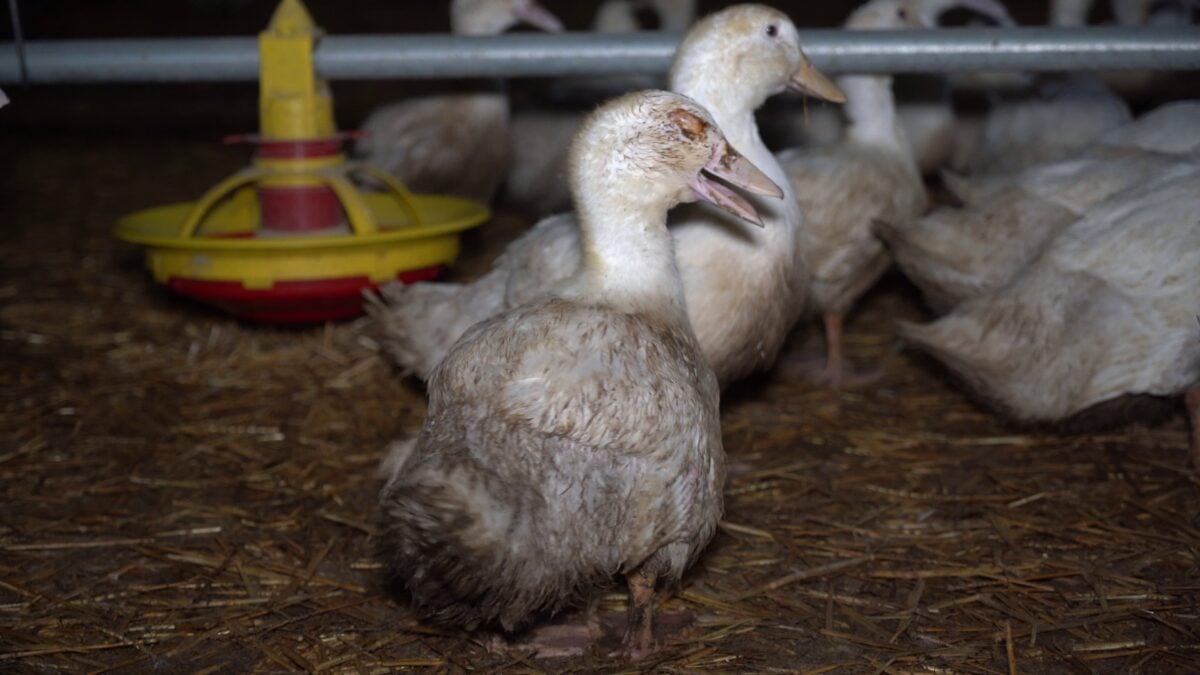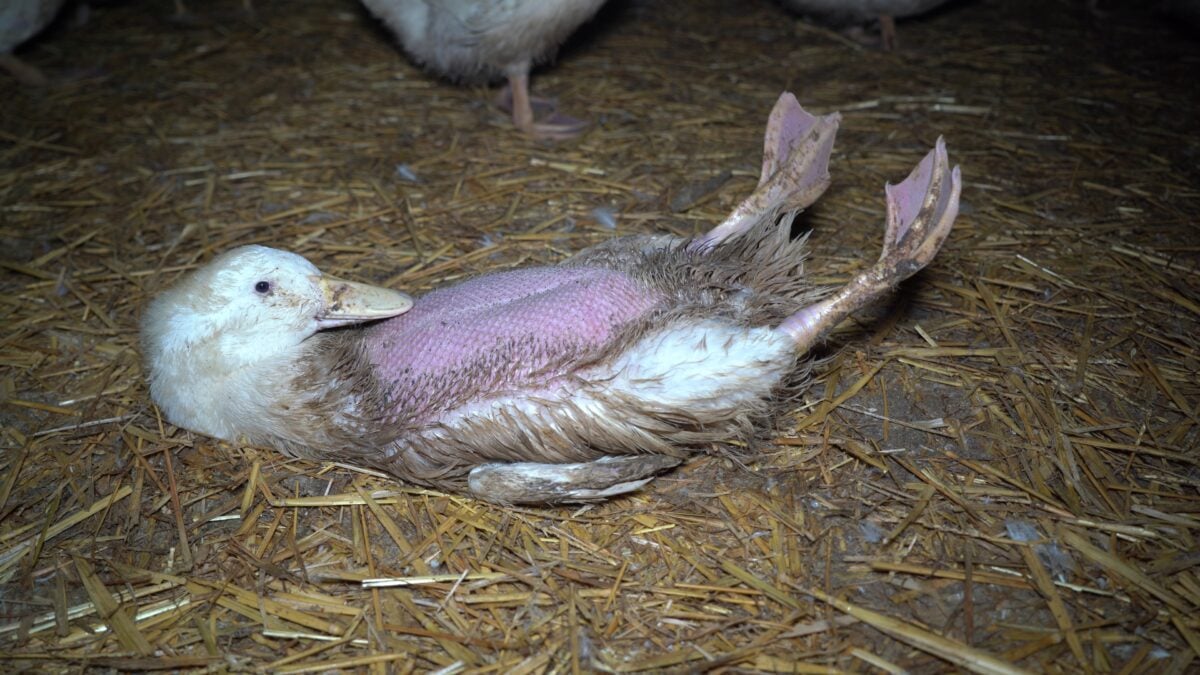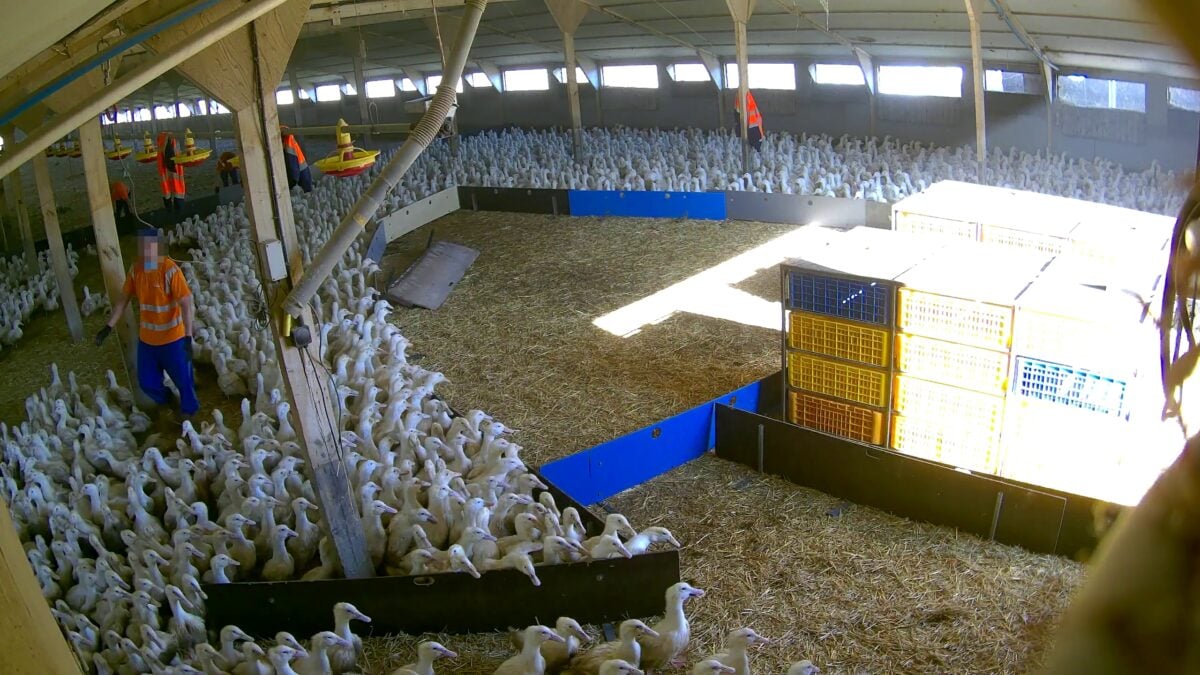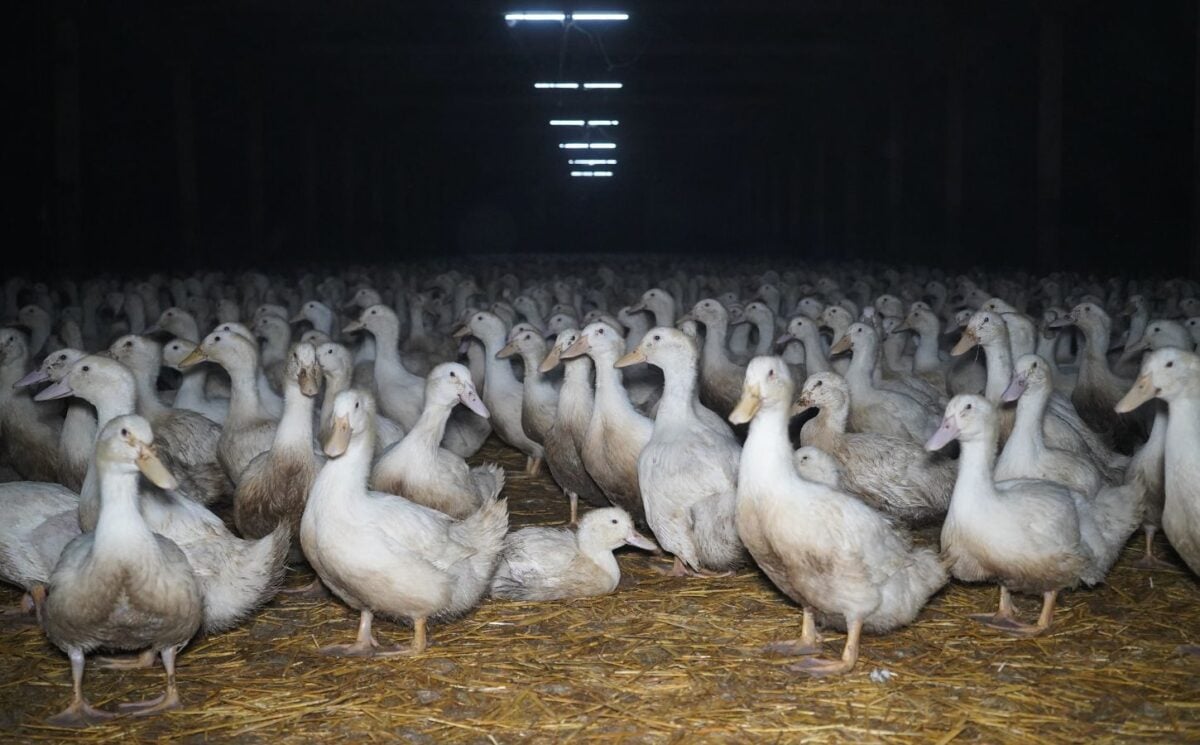*Warning: this article contains images that some might find distressing*
A recent investigation has shone light on the hidden world of duck factory farming in the UK.
Vegan organization Animal Justice Project released “brutal” footage depicting “depopulation” of ducks at Yorkshire’s Byram Park Farm. The farm supplies Gressingham Foods, which is the largest duck producer in the country.
Depopulation in this context refers to ducks being caught for slaughter. Birds on farms are caught en masse at breakneck speed, which severely compromises their welfare. A “catching company” is often used to do this, and this farm employed a firm called Keyo, which is said to be the largest “poultry handling” organization in the UK. Workers were seen swinging ducks by their necks, strangling them, throwing them to scare others, and even using them as weapons to strike other birds. Around 10,000 ducks were caught in two hours.
Elsewhere on the farm, ducks suffered from severe injuries, ammonia burns, eye infections, blindness, and there was a high rate of feather loss among the birds.
The problem with duck farming

Much of the UK population may not associate ducks with factory farms as they do pigs or chickens, as the majority of our contact with them is seeing them in the wild in ponds. But around 11 million ducks are farmed for food in the country each year.
The majority of these animals are kept intensively in large sheds, similar to those housing broiler chickens, but duck farming carries its own specific welfare costs.

Ducks need access to water for their mental and physical health, which they are denied on factory farms. They become stressed without the ability to bathe, and they also suffer from eye infections and blocked sinuses. They often desperately try to bathe with their small water drinkers, leading the barns to become damp and humid.

“This industry largely goes under the radar. It is a very small industry compared to others like broiler farming,” Animal Justice Project campaigns manager Ayrton Cooper told Plant Based News (PBN). “But this also brings a positive element – it can be affected more through impactful investigations and campaigning.”
Duck factory farming exposed
Animal Justice Project has been campaigning against duck farming for years, and it’s conducted multiple investigations in farms across the UK. According to Cooper, the exposés have “hit the duck industry hard” due to the widespread cruelty they uncovered.
The organization has described noises on the farms they visited (some of which were Red Tractor approved) as “overwhelming,” with cries of young ducklings “drowning out” the churns of feeders and other machinery.
“Ducklings often call to their mums for comfort and have a distress call for when they are lost and scared,” Animal Justice Project states on its website. “The overpowering calls were those of distress. They had no mothers to comfort them, so their distress continued to heighten.”
In 2020, the organization exposed live shackling of ducks at a Gressingham Foods abattoir. Footage revealed that they were left for long periods while waiting to be killed, with one hanging for 14 minutes.
Animal Justice Project is campaigning against Gressingham Foods, which has an annual turnover of a turnover of £157 million and a 650-strong workforce. “We urge supermarkets to sever all ties with Gressingham Foods, emphasizing the crucial need for a transformative shift in the products they offer to customers,” said Cooper. “This shift should steer away from supporting animal agriculture and, instead, embrace the path of plant-based farming—a move toward a more compassionate and sustainable future.”






